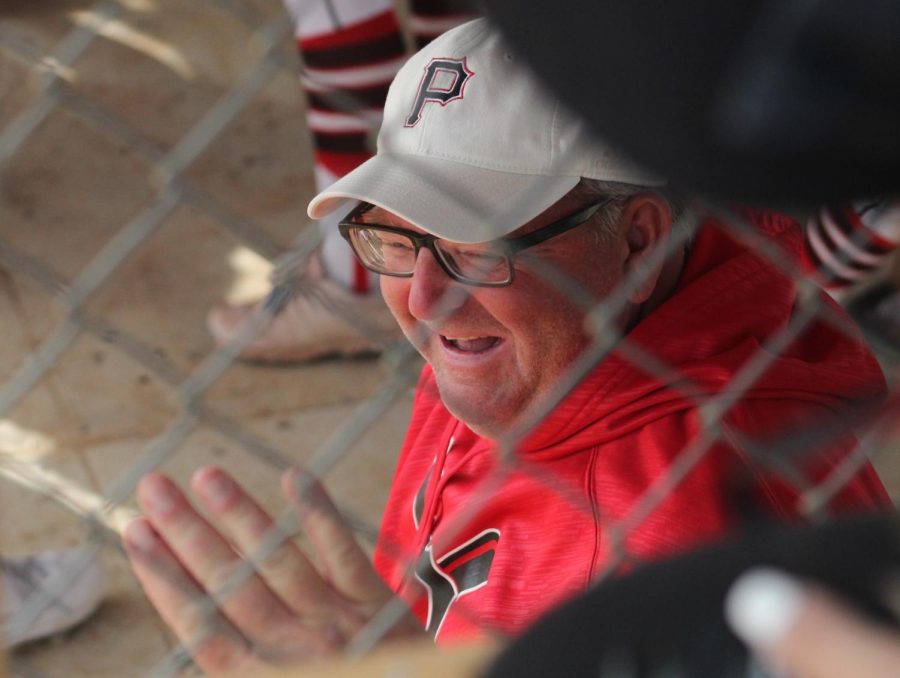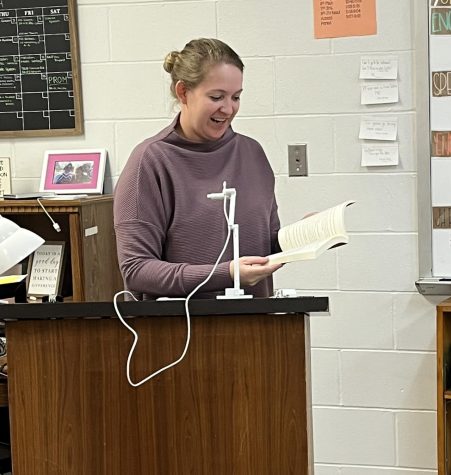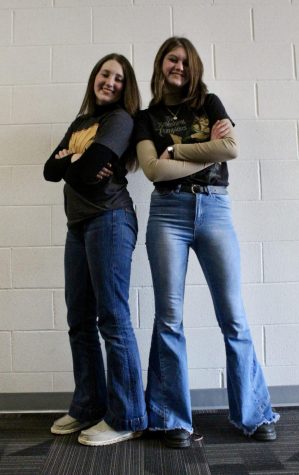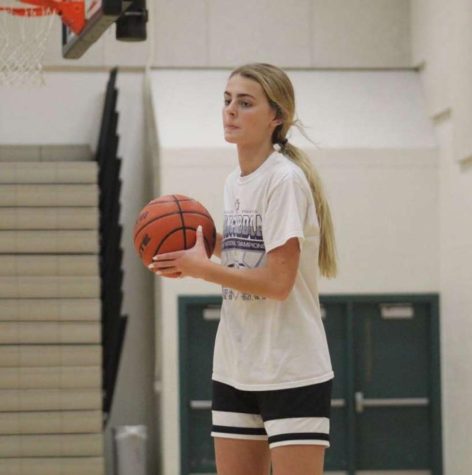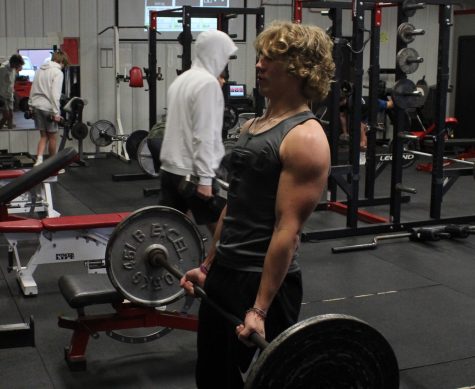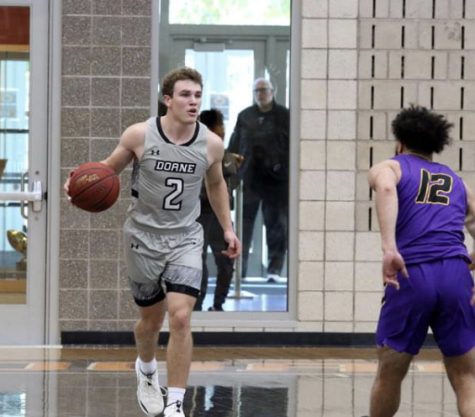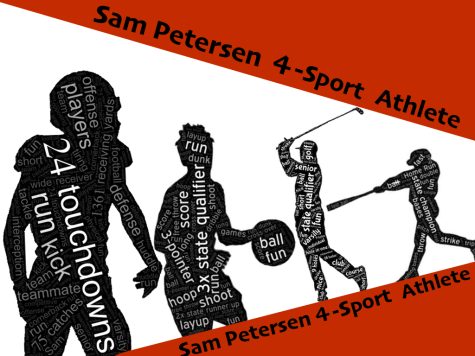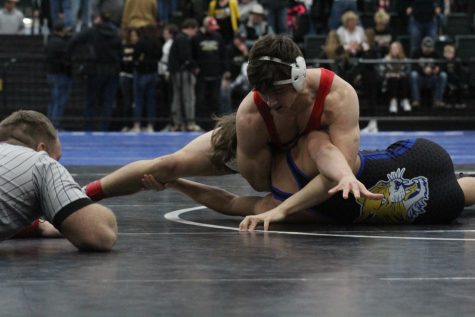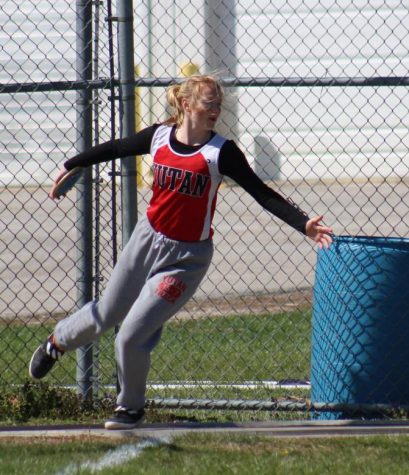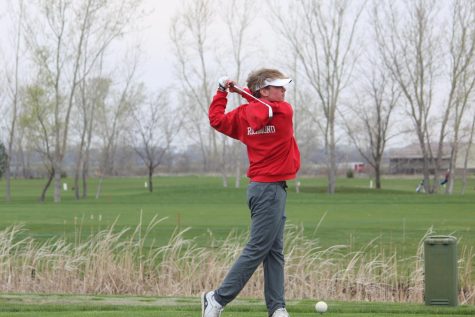Coaches find rewards in working with athletes
Assistant softball coach Mike Davis laughs with his fellow coaches at the state softball tournament. During his time at Yutan, Davis has coached softball, football, basketball, and track.
Oftentimes, people talk about how their coaches in high school and college affected them later in life. Not only does coaching affect athletes’ lives, but it also affects the coaches’ lives.
“When you coach…you talk about certain things and it forces you to model all that, the things that you’re talking about, being a good person and work ethic and those types of things,” special education teacher and coach Mike Davis said. “So it helps you become a better person, in my opinion.”
Since these coaches were athletes once too, their own coaches had an impact on their desire to play a part in their teams’ lives.
“I had great high school coaches myself. My volleyball coach was also my track coach, and I had great basketball coaches,” science teacher Leslie Heise said. “They have all been inspirations of just taking players and helping us develop and keeping the season fun, even when we would hit some rough patches.”
Although each individual coach finds different parts of their jobs rewarding or challenging, one challenge many of them agree on is the time commitment.
“I joke that, once basketball starts, my life is pretty much over for the year,” Heise said because after basketball season is over, she also coaches track. “I’m not home at a normal time, especially when the seasons get busy.”
Another challenge, Davis claims, is making sure every athlete understands the information. Not everyone learns the same, so learning to read the athletes is something that coaches need to do.
“You realize that players take in information differently. And so you have to be really good at being able to explain it in a way that everyone understands,” Davis said. “When I was a young coach, I just would tell them, and I would just expect them to figure it out. And I would get frustrated when they… didn’t. And so I had to look at myself and say, ‘Well I’ve got to do a better job of explaining it.’”
While it takes a lot of time away from their day, these coaches agree that coaching is a fun job.
“It’s like you can still remember what it’s like to be out there as a kid running around,” social studies teacher and coach Dan Krajicek said.
The coaches have fun while also working with their athletes in order to have an impact on their lives.
“Well, you hope that you teach them something,” Davis said. “We’re there to get you to a level that you couldn’t get to just by yourself. So you hope you teach them something that they can use while they’re playing, but then you also hope that you can teach them something they can take with them as they get older and turn into husbands and wives and mothers and fathers… so that they’re good people.”
In the end, these coaches have no plans of stopping anytime soon. They claimed that as long as it’s enjoyable and they are wanted on the team, they will continue working with athletes to make them the best they can be.
“The wins and stuff are fun, but the…relationships afterwards, after everything’s over, that’s the most rewarding part,” Krajicek said.
Your donation will support the student journalists of Yutan High School. Your contribution will help cover our annual website hosting costs, as well as allow us to purchase equipment and produce more in-print editions.
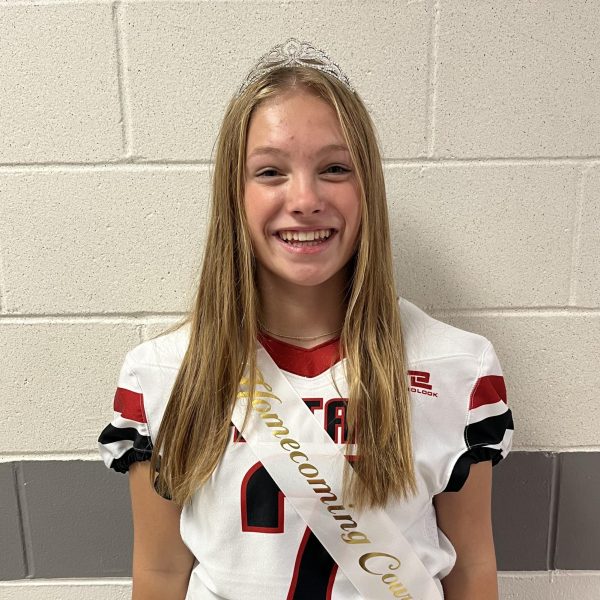
Bella Tederman is a senior in her fourth year of journalism. She enjoys writing stories and taking pictures. Outside journalism, Bella is involved in...

